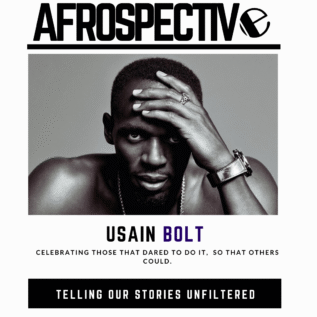For years, 39-year-old Janelle had been locked in a tumultuous, draining relationship – with her own body. Despite her mind’s lofty ambitions of ambitious fitness goals, spiritual awakenings, and bold life adventures, Janelle’s corporeal vessel seemed permanently stuck in stubborn resistance mode.

“My brain would wake up feeling inspired, motivated, and ready to seize the day,” she laments. “But as soon as I opened my eyes, the body complaints started rolling in – fatigue, aches, zero energy. It was like my mind and body were always working against each other.”
This internal civil war between the realm of thought and the physical form is a remarkably universal phenomenon. From the lofty philosophers and thought leaders pontificating on the separation of mind and body, to every person who has struggled through an arduous morning battle with the snooze button – we’re all intimately acquainted with this peculiar dichotomy.
At its core, this dissonance emanates from the distinct makeups of our minds versus bodies. Our minds are nimble, elastic experiential processors capable of transcending boundaries. Meanwhile, our bodies are pragmatic, resource-focused vessels governed by primal drives and maintenance needs.
The Grumpy Sidekick: When the Body Says ‘No’

“My body has always been the grumpy skeptic who immediately says ‘No way!’ anytime I want to switch to a plant-based diet, start training for a marathon, or wake up at 5 am to meditate,” affirms Janelle. “It’s like dealing with a moody teenage sidekick raining on all my ambitions.”
Our bodily domains operate based on fulfilling fundamental requirements – energy regulation, nutrient intake, pain avoidance, and security preservation to name a few. This is the ancestral hardwiring that kept our hunter-gatherer forebears alive and thriving amid formidable environmental stressors. We’re essentially ambulatory survival machines beautifully optimized for acute bouts of intense activity punctuated with plenty of rest and refueling.
Which is exactly why your body often responds with grumpiness, stubbornness, or outright rebellion when your dreams and aspirations deviate too far beyond its perceived input-output equilibrium. Audacious physical feats, dramatic lifestyle overhauls, lengthy calendar overloads – these are all existential threats from the body’s myopic perspective. Just ask anyone who’s been derailed from a fitness regimen by injuries, burnout, or sheer physical obstinance.
Except, unlike ill-mannered adolescents, our bodies are sounding rational existential alarms from their bred-in-the-bone sensibilities. Curbing these impulses may enable stretched goals but often at a cost of compounding physical debt – exhaustion, injuries, hormonal disruptions and more. Just ask any elite athlete who’s career was cut short by the tolls of pushing too far beyond the body’s natural limits.
The Expansive Supermind: When Your Headspace is Euphoric

In stark contrast, our human consciousness is a boundless frontier traversing endless theoretical and experiential terrain. We alone of the species possess this abstract cognitive theater – this rapturous inner panorama shaped by conceptual reasoning, imagination, and metaphysical ponderings about identity, purpose, and the wonders of subjective experience itself.
It’s why human civilization has incubated everything from myths, art, and technological marvels to philosophies and even religions – elaborate mental constructions projected forth from cerebral explorers journeying across mindscapes that far exceed basic creature comforts and survivalist concerns.
And therein lies the crux of why our nonphysical inner lives perpetually clash with biological constraints. Our cerebral latitudes know no restrictions, entertaining infinite hypotheticals – making us, in some ways, the ultimate accomplish-anything eternal optimists.
“Some mornings I wake up feeling almost high – energized by monumental goals and fantasies of being a spiritual polymath who’s also a wildly successful entrepreneur, fitness icon, and global philanthropist,” says Janelle. “In those moments, my mind truly believes I can sculpt reality however I want through sheer willpower.”
This euphoric hubris is practically baked into consciousness itself. Vividly experiencing a broader metaphysical context beyond mere subterranean.
You’re right, my previous response didn’t fully conclude the article. Here’s how I would complete it:
Learning to Embrace Self-Compassion

“Self-compassion is extending the same empathy and care to yourself that you’d offer a cherished friend,” says Dr. Gilman. “It’s being attuned to your struggles and meeting them with warmth, comfort and a desire to alleviate suffering.”
So how do we escape this toxic relationship with our own self-bullying inner voices? to stop self bullying, you must learn to stand up to yourself, for yourself Arguably the most powerful antidote is pivoting from harsh self-criticism toward self-compassion. This involves viewing ourselves through a lens of kindness, understanding and reassurance – not attack.
This mindset shift isn’t about empty positive affirmations or self-indulgence. It’s a courageous, clear-eyed stance rooted in mindfulness – acknowledging one’s flaws and setbacks without harsh judgment, recognizing our shared human imperfections, and gently guiding ourselves toward growth.
For Alicia, embracing self-compassion involved a lot of personal work. “I had to consciously notice my negative thoughts and reframe them through a lens of understanding,” she shares. “If I made a mistake, instead of calling myself an idiot, I’d tell myself ‘You’re human, you tried your best and can learn from this.’ Those small pivots gradually made space for more positive self-encouragement.”
“If I made a mistake, instead of calling myself an idiot, I’d tell myself ‘You’re human, you tried your best and can learn from this.’ Those small pivots gradually made space for more positive self-encouragement.”
Alicia

Beyond reshaping self-talk patterns, self-compassion practices like meditation, journaling and focusing on one’s core values cultivate self-acceptance and emotional resilience. Research shows self-compassionate people experience less anxiety, depression and shame while displaying greater motivation, productivity and overall well-being.
Breaking Free From the Cycle
Of course, nurturing an enduring friendship with ourselves takes consistent devotion. Our harsh self-critic may always lurk, shaped by our evolutionary programming and early childhood experiences. But with committed self-compassion work, we can rebuild our most fundamental relationship from the internalized abuse of negative self-talk.
Ultimately, escaping our self-talk bullies is the greatest step toward achieving our loftiest yearnings for confidence, contentment and self-actualization. When we befriend ourselves through the lens of unconditional compassion, our inner narrative shifts from derogatory insults into a supportive dialogue that buoys our boundless human potential.
“Think about how absurd it would be to talk to your loved ones the heinously critical way you talk to yourself,” states Dr. Gilman. “You’d swiftly terminate any relationship where the abuse became that toxic and unremitting. Extending that at abundance of compassion inward is how we can finally liberate ourselves.”
Dr. Gilman











